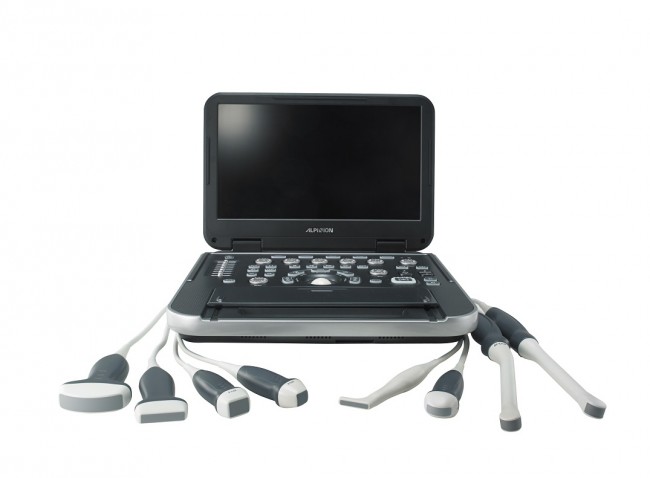A relatively common physical examination abnormality in dogs and cats is splenomegaly or an enlarged spleen. There are quite a few potential reasons for this organ enlargement, so I wanted to share some helpful information about the spleen and the likely causes of organ growth.
What is the spleen?
The spleen is a component of a pet’s immune system. It’s the largest lymphoid organ in the body that essentially acts as a filter and has the following primary functions:
– Removal of foreign invaders by a process called phagocytosis
– Removal of dying and abnormal red blood cells from circulation
– Production of various immune cells, including lymphocytes and plasma cells
– Red blood cell production
– Red blood cell and platelet storage
– Iron metabolism
Why does the spleen get big?
Spleens become enlarged for one of four general reasons:
-Infiltration: Cells and other various substances can infiltrate the splenic tissue. This infiltration causes the organ to grow substantially larger than average. Cancers are the most common cause of infiltrative splenomegaly. However, some infiltration can be benign! An infiltrative process can be diffuse or nodular. Common causes of diffuse infiltrative splenomegaly include lymphoma, mast cell disease, multiple myeloma, leukemias, amyloidosis, and histiocytosis. Some benign causes of nodular infiltration include hematoma formation, granulomas (an attempt by the immune system to wall off substances), abscesses, and some benign tumors (i.e., hemangiomas, myelolipomas). More commonly, nodular infiltration is cancerous. The most common splenic tumors are hemangiosarcoma, histiocytic sarcoma, leiomyosarcoma, fibrosarcoma, osteosarcoma, and undifferentiated sarcomas
-Inflammation: Various infectious diseases, including bacteria, viruses, protozoa, and fungi, cause the spleen to grow in size.
-Reactive changes: The spleen becomes bigger when it accumulates immune cells like lymphocytes and plasma cells. This collection occurs as a result of immune system stimulation associated with certain diseases, including immune-mediated hemolytic anemia.
-Congestion: When splenic veins don’t drain normally, blood accumulates with the spleen to cause it to swell. Potential causes of impaired venous drainage include right-sided heart failure, certain liver diseases, obstruction of specific major veins in the body (i.e., portal vein, caudal vena cava), and splenic torsion.
How do I know if my pet’s spleen is enlarged?
The reality is pet parents won’t know precisely if their fur baby’s spleen is enlarged. However, they may observe changes in their pet’s behavior at home that raise common red flags that a problem may be brewing. One should not some patients with enlarged spleens have no clinical signs, yet others can be profoundly ill. Potential clinical symptoms include:
– Lethargy and weakness
– Collapse episodes
– Fever
– Pale gums
– Loss of appetite
– Abdominal distension and discomfort
– Vomiting and diarrhea
– Elevated and abnormal heart rhythm
– Rapid and difficulty breathing
– Yellowing of the whites of the eyes
Dogs and cats with any of the above-listed clinical signs should be evaluated by a veterinarian as soon as possible. Identifying an enlarged spleen is relatively straightforward for a veterinarian. Organ enlargement is typically readily palpable a complete physical examination. A prominent spleen may be normal certain dog breeds, including German shepherds and Scottish terriers. Once abnormal splenomegaly has been documented, a veterinarian will recommend further diagnostic testing in an attempt to determine the definitive cause of the enlargement. Common tests recommended to help determine the cause of an enlarged spleen include:
– Baseline blood & urine testing (i.e., complete blood count, biochemical profile, urinalysis)
– Diagnostic imaging (i.e.: abdominal radiographs / x-rays; abdominal ultrasonography, chest radiographs / x-rays; echocardiography / heart ultrasonography)
– Splenic cytology (evaluation of cells) and biopsy
– Infectious disease screening
– Bone marrow sampling
How will my pet be treated?
Specific treatment for splenomegaly depends on the definitive underlying cause. A patient with an infectious cause of an enlarged spleen needs medication to battle the infection. A pet with an immune-mediated disease requires drug(s) to modify the function of the animal’s immune system. A dog or cat with a splenic tumor typically initially needs surgery to remove the spleen (called a splenectomy), and may subsequently benefit from chemotherapy.
The wrap-up about splenomegaly . . .
An enlarged spleen or splenomegaly is relatively common in dogs and cats. It is essential to identify early the exact cause of this abnormality. Veterinarians will perform a complete physical examination, as well as some diagnostic tests to make a definitive diagnosis. Treatments depend on the underlying cause and may include medication(s), surgery, and cancer treatments.
Links to related videos:
Portable Veterinary Ultrasound

